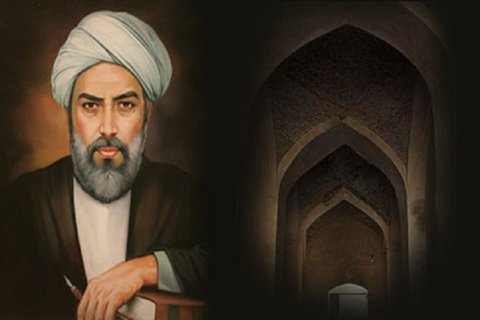Iran (IMNA) - Sadr al- Din Muhammad Shirazi best known as Mulla Sadra is the most prominent Islamic Philosopher after Avicenna. He is a remarkable figure in the Iranian cultural renaissance of the 17th century; a pursuit of wisdom whose goal was to become a wise person.
This prominent philosopher had an interest in theology and regarding his interest, he presented a particular approach to philosophy and drew insights from mystical intuition. For him, philosophy was a set of spiritual exercises which is combined with theology.

For the first time it was Mulla Sadra who revolutionized some concepts. For example, he critiqued simple dichotomy between a discursive and ratiocinative mode of reasoning and knowing. According to Aristotelian Metaphysics, the basic stuff of reality was constituted by substances and materials.
In this regard, Mulla Sadra initiated a Neoplatonic process and put Aristotelian metaphysics under question. Indeed, Mulla Sadra’s metaphilosophy was based on existence as the only element of reality and rejected any factors for essences in the external world.

He considered existence as the unique source of both unity and diversity and a single unity which articulated dynamic process. From such a valuable point of view, Mulla Sadra was able to find solutions for many of the logical, metaphysical and theological difficulties which have roots in the past.
His major philosophical work is "The Asfar" (The Four Journeys), which runs to nine volumes and consists of Mulla Sadra’s presentation of his philosophical ideas. In fact, the complete title of the book is Al Hikmat Al Motaaliyyah fi Al Asfar Al Aghliyyah Al Arbeah which means Transcendent Philosophy on the Four Intellectual Journeys. Regarding this matter that in Arabic, the word "Asfar" means "Journey", in this book, Mulla Sadra indicated four journeys of man.

In the first volume of Asfar, Mulla sadra focuses on analysis of principal concept of wujud (being) and quiddity (essence). The first journey consists of four journeys; the first journey is related to discussion on the ontology and the doctrine of being. The second journey is concerned with substance and accidents, the third journey is about God and the fourth one deals with discussion on human beings, such as soul of human, his destiny, death and resurrection.
As a matter of fact, in this book, Mulla Sadra expresses his opinion on world creation and its relationship and place to the time and also, he clarifies the meaning of the universe. Consequently, he believes that reality is a pure existence; a kind of existence which manifests itself in different modes. Thus everything is comprehended by existence even nothingness.

Provided by: Elahe Jalali


Your Comment